14 start with F start with F

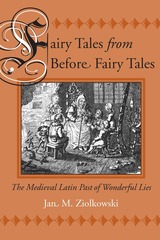
When did fairy tales begin? What qualifies as a fairy tale? Is a true fairy tale oral or literary? Or is a fairy tale determined not by style but by content? To answer these and other questions, Jan M. Ziolkowski not only provides a comprehensive overview of the theoretical debates about fairy tale origins but includes an extensive discussion of the relationship of the fairy tale to both the written and oral sources. Ziolkowski offers interpretations of a sampling of the tales in order to sketch the complex connections that existed in the Middle Ages between oral folktales and their written equivalents, the variety of uses to which the writers applied the stories, and the diverse relationships between the medieval texts and the expressions of the same tales in the "classic" fairy tale collections of the nineteenth century. In so doing, Ziolkowski explores stories that survive in both versions associated with, on the one hand, such standards of the nineteenth-century fairy tale as the Brothers Grimm, Hans Christian Andersen, and Carlo Collodi and, on the other, medieval Latin, demonstrating that the literary fairy tale owes a great debt to the Latin literature of the medieval period.
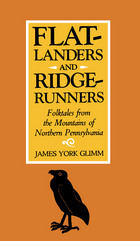
Excerpt from Flatlanders and Ridgerunners:
Out-Riddling the Judge
Back in Prohibition my uncle made moonshine. His name was Moses Kenny and his whiskey--they called it “White Mule” was the best in the county. Well, the feds got after him and finally they arrested him. Took him to a federal judge down in Philadelphia.
Now, the judge liked a good time and thought he’d have a little fun with this hick from the mountains. When Uncle came into court, he said, “are you the Moses who can make the sun dark?”
Moses looked at him and said slowly, “Nope, your honor. But I am the Moses who can make the moon shine.”
The judge let him go.

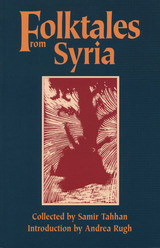
Syrian poet Samir Tahhan collected folktales from old men sitting outside their houses in Aleppo, drinking tea. Afraid these stories would disappear with the passing of this generation, Tahhan also went to halls and events to hear professional storytellers and record their performances. Anthropologist Andrea Rugh helped translate the resulting two volumes of stories from the original Arabic and wrote the informative introduction to this one-volume collection.
Some of the tales appeared in rhyming verse in Arabic and some were based on events that are said to have actually taken place in Aleppo. Rugh explains the concepts of the most popular types of Syrian story structures: the gissa, the hikaya, and the hudutha. With two of the poems, the Arabic and the English are shown side by side in order to demonstrate the internal poetic structures of the original rhymes.
With their emphasis on morality and social values, the tales will be familiar to Western audiences. Another value for the reader is finding the accepted social values and behaviors that Arab adults try to inculcate in their younger generation, often through complex characterizations. Teasing out these meanings gives the reader an appreciation for the act of translation and hints of the power of the Arabic language in prose and poetry.
Professional illustrator Douglas Rugh has provided the book's black-and-white prints based on the stories and his experiences as a child growing up in the Middle East.
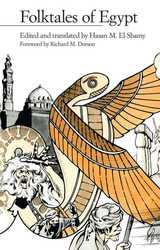
"This collection of seventy recently collected Egyptian tales is a major contribution to African studies and to international distribution studies of folktales. In the face of the recent anthropological trend to use folkloric materials for extra-folkloric purposes, the preeminence of the text must be asserted once more, and these are obviously authentic, straightforwardly translated, fully documented as to date of collection and social category of informant, and for all that . . . readable."—Daniel J. Crowley, Research in African Literatures
"Western knowledge of virtually all facets of contemporary Egyptian culture, much less the roots of that culture, is woefully inadequate. By providing an interesting, varied, and readable collection of Egyptian folktales and offering clear and sensible accounts of their background and meaning, this book renders a valuable service indeed."—Kenneth J. Perkins, International Journal of Oral History
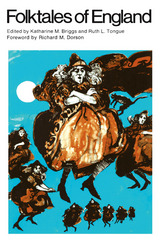
"This is a fine, homely feast, immediately intelligble. . . ."—Times Educational Supplement
". . . should be of special concern to Americans since many of the tales are parallel to or the source of our own folk stories."—Choice
"This is entertainment, to be sure, but is also part of man's attempts to comprehend his world."—Quartet
"Folktales of England is by all odds the most satisfactory general collection of folktales to come out of England since the advent of modern collection and classification techniques."—Ernest W. Baughman, Journal of American Folklore

"This collection does an excellent job of representing India. . . . It is the type of book that can be enjoyed by all readers who love a well-told tale as well as by scholars of traditional narrative and scholars of India in general."—Hugh M. Flick, Jr., Asian Folklore Studies
"The stories collected here are representative, rich in structural subtlety, and endowed with fresh earthy humor."—Kunal Chakraborti, Contributions to Indian Sociology
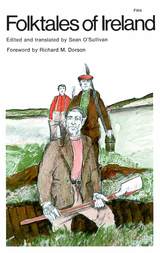
"Without doubt the finest group of Irish tales that has yet been published in English."—The Guardian
"O'Sullivan writes out of an intimacy with his subject and an instinctive grasp of the language of the originals. He tells us that his archives contain more than a million and a half pages of manuscript. If Mr. O'Sullivan translates them, I'll read them."—Seamus Heaney, New Statesman
"The stories have an authentic folktale flavor and will satisfy both the student of folklore and the general reader."—Booklist
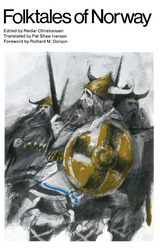
"The translation is excellent, retaining the traditional Norwegian style . . . the tales themselves will also appeal to the interested layman."—Library Journal
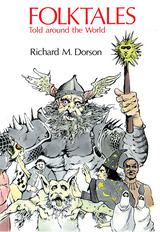

Forklore tells the tale of this extraordinary dining establishment, while dishing out some delectable recipes. Yin brings to her writing the same qualities of careful attention and lively enthusiasm that characterize her best dishes. With great gusto, she describes how she fell in love with food, how Fork was born, and how her chefs have helped to create its unique cuisine. And throughout her story she liberally sprinkles recipes -- simple, delicious, and easy to cook at home -- that represent the best of New American Bistro cooking. There are nearly 100 recipes in all, and every one has a story, served up by Yin with relish and delight.
For anyone who likes a juicy story, well seasoned with zesty anecdotes and mouthwatering recipes, Forklore is a treat.
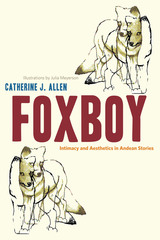
Once there was a Quechua folktale. It begins with a trickster fox's penis with a will of its own and ends with a daughter returning to parents who cannot recognize her until she recounts the uncanny adventures that have befallen her since she ran away from home. Following the strange twists and turnings of this tale, Catherine J. Allen weaves a narrative of Quechua storytelling and story listening that links these arts to others—fabric weaving, in particular—and thereby illuminates enduring Andean strategies for communicating deeply felt cultural values.
In this masterful work of literary nonfiction, Allen draws out the connections between two prominent markers of ethnic identity in Andean nations—indigenous language and woven cloth—and makes a convincing case that the connection between language and cloth affects virtually all aspects of expressive culture, including the performing arts. As she explores how a skilled storyteller interweaves traditional tales and stock characters into new stories, just as a skilled weaver combines traditional motifs and colors into new patterns, she demonstrates how Andean storytelling and weaving both embody the same kinds of relationships, the same ideas about how opposites should meet up with each other. By identifying these pervasive patterns, Allen opens up the Quechua cultural world that unites story tellers and listeners, as listeners hear echoes and traces of other stories, layering over each other in a kind of aural palimpsest.
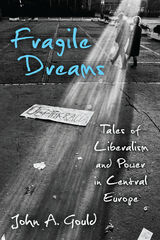
In Fragile Dreams, John A. Gould examines Central European communism, why it failed, and what has come since. Moving loosely chronologically from 1989 to the present, each chapter focuses on topics of importance to the fields of comparative politics, sociology, and feminist and gender studies. He draws heavily from his own research and experience as well as case studies of the former Czechoslovakia, Western Balkans, and Hungary—but much of the analysis has general applicability to the broader postcommunist region.
Broad in its coverage, this academically rigorous book is ideal for students, travelers, and general readers. Gould writes in the first person and seamlessly blends theory with stories both from the existing literature and from 30 years of regional personal experience with family and friends. Throughout, Gould introduces key concepts, players, and events with precise definitions. Wherever possible, he emphasizes marginalized narratives, centering theory and stories that are often overlooked in standard comparative political science literature.
READERS
Browse our collection.
PUBLISHERS
See BiblioVault's publisher services.
STUDENT SERVICES
Files for college accessibility offices.
UChicago Accessibility Resources
home | accessibility | search | about | contact us
BiblioVault ® 2001 - 2024
The University of Chicago Press









